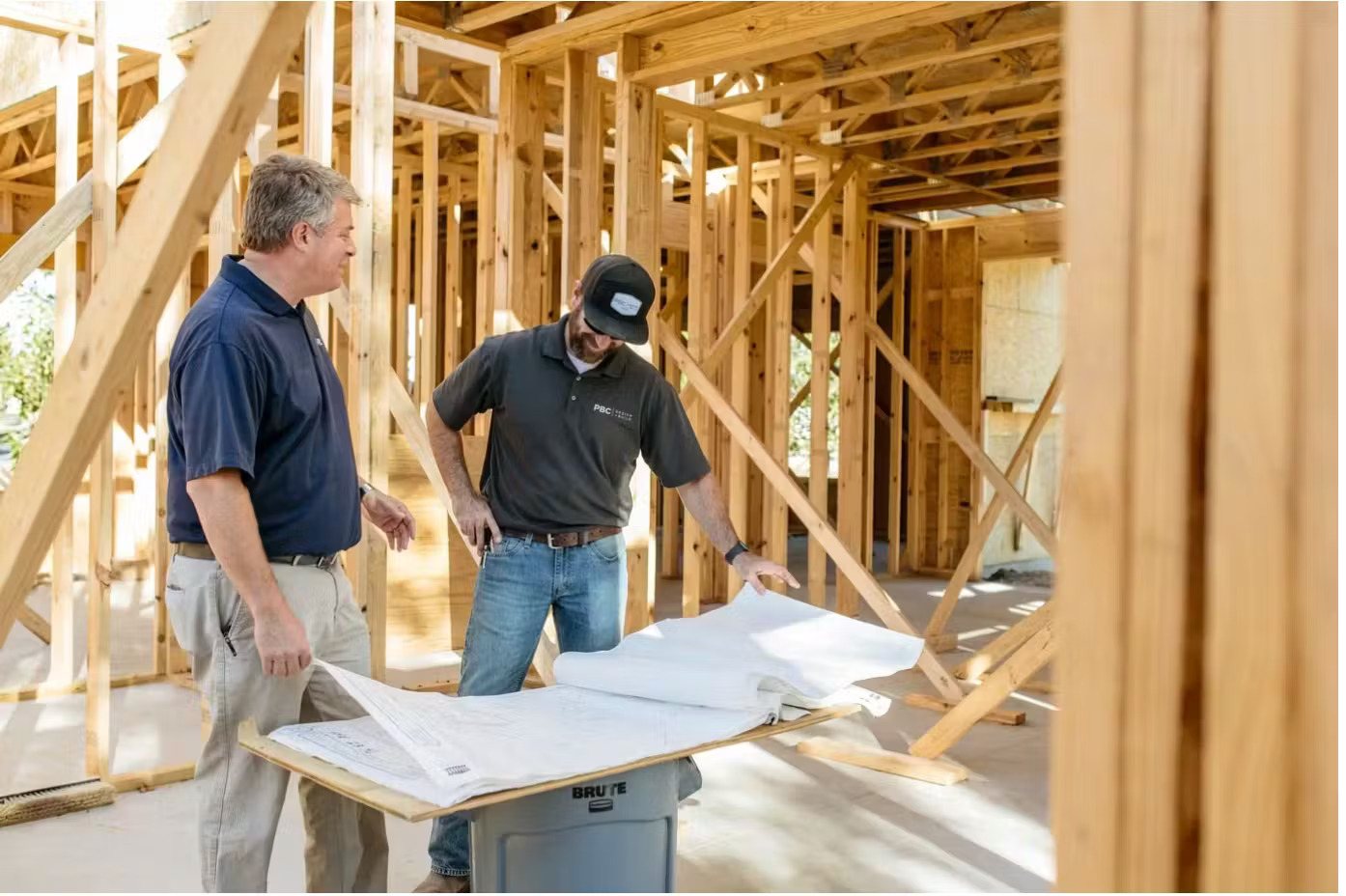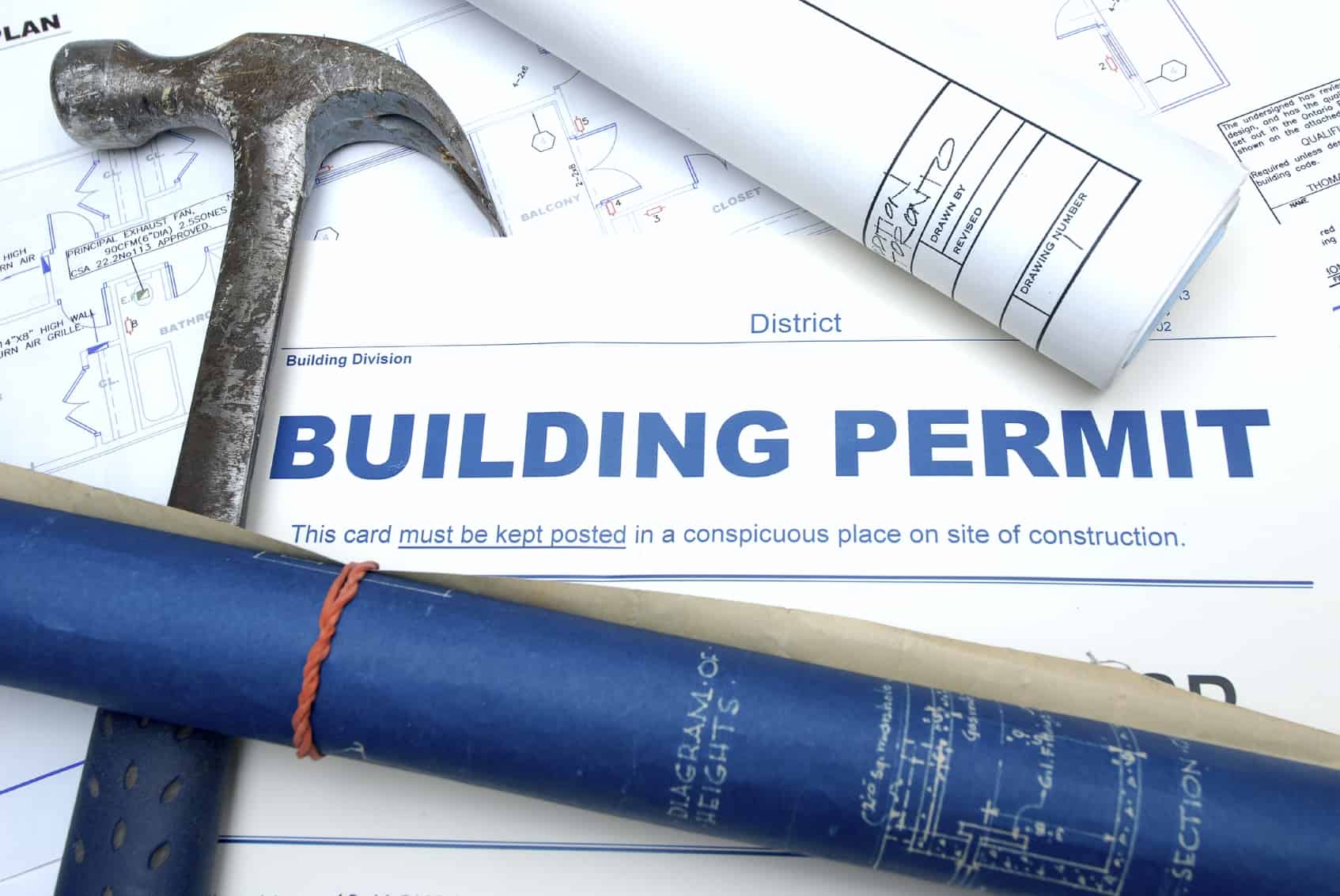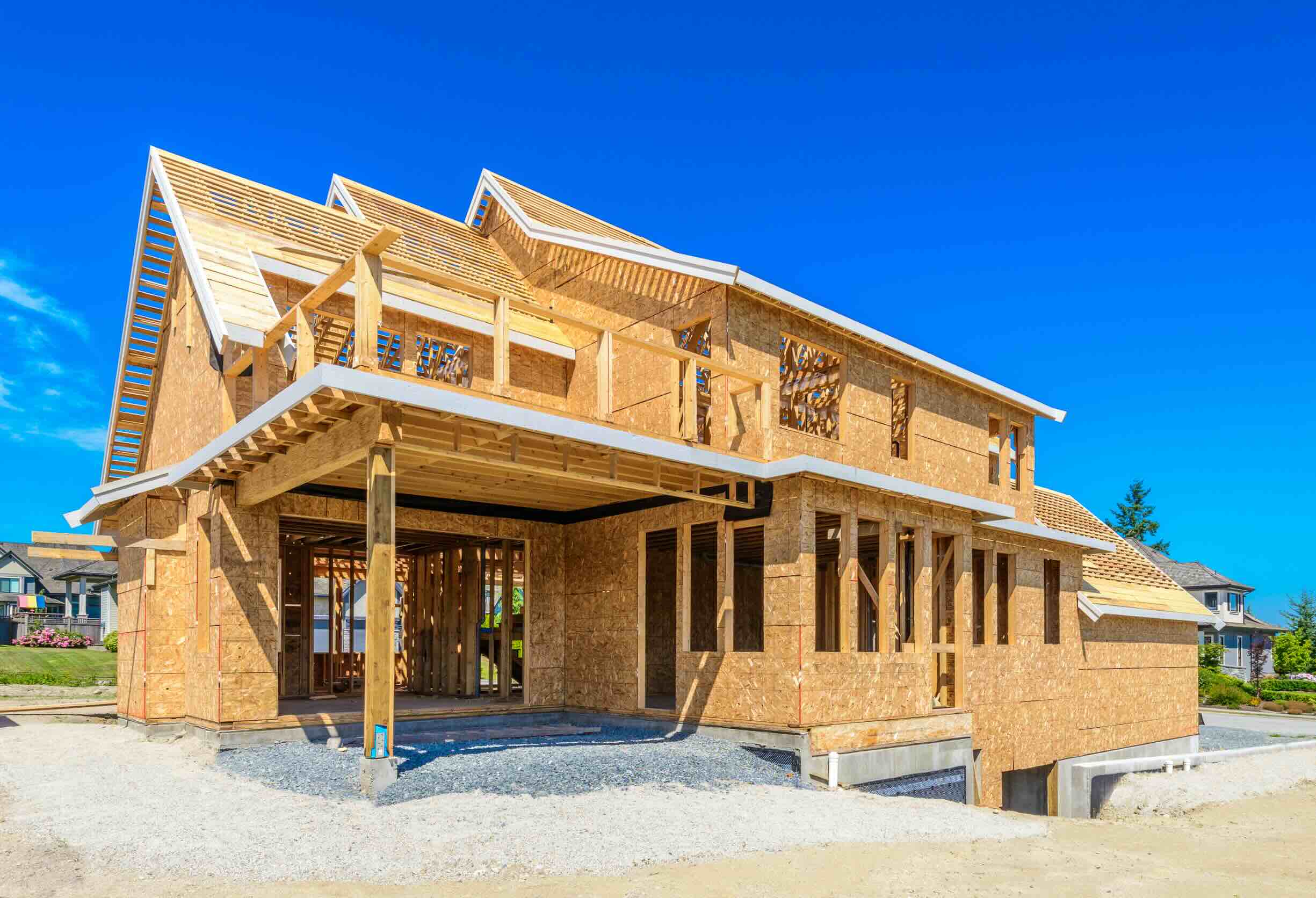Home>diy>Building & Construction>How To Get Into Residential Construction


Building & Construction
How To Get Into Residential Construction
Modified: January 24, 2024
Learn how to get into residential construction and start building your career in the building and construction industry. Find tips and information on training, job opportunities, and more.
(Many of the links in this article redirect to a specific reviewed product. Your purchase of these products through affiliate links helps to generate commission for Storables.com, at no extra cost. Learn more)
Introduction
Welcome to the exciting world of residential construction! If you have a knack for building and a passion for creating homes that people can cherish, then a career in residential construction may be the perfect fit for you. Whether you’re just starting out or looking to take your existing construction skills to the next level, this comprehensive guide will provide you with the necessary insights and strategies to get into residential construction.
Residential construction involves the creation, renovation, and remodeling of homes and other residential structures. It is a diverse and dynamic industry that encompasses a wide range of trades, including carpentry, plumbing, electrical work, masonry, and more. From constructing single-family houses to developing large-scale residential projects, residential construction offers a multitude of career opportunities.
As with any profession, it’s essential to understand the industry you’re entering. Residential construction combines technical knowledge, hands-on skills, and effective project management to bring homeowners’ dreams to life. By gaining a solid understanding of the industry and the skills required, you’ll be better equipped to succeed in this rewarding field.
In this article, we’ll delve into the necessary skills and qualifications for a career in residential construction. We’ll also explore the education and training requirements, along with strategies for gaining valuable on-the-job experience. Additionally, we’ll provide guidance on how to build a professional network, find job opportunities, and navigate the application and interview process.
Whether you’re looking to work for a construction company, start your own residential construction business, or specialize in a specific trade, this guide will serve as your roadmap to success. By following the steps outlined here, you’ll be well on your way to forging a fulfilling and prosperous career in the residential construction industry.
Key Takeaways:
- Entering the residential construction industry requires a solid foundation of technical skills, attention to detail, physical fitness, problem-solving abilities, and a commitment to continuous learning. Embracing safety, communication, and teamwork is essential for success.
- To excel in residential construction, aspiring professionals should focus on gaining hands-on experience, building a strong professional network, and staying informed about industry developments. Embracing technology, seeking mentorship, and fostering a collaborative mindset are key to advancement.
Understanding the Residential Construction Industry
The residential construction industry plays a crucial role in society by providing individuals and families with safe, comfortable, and functional homes. It encompasses various sectors, including single-family homes, multi-unit residences, apartment complexes, and condominiums. To excel in this industry, it’s essential to grasp its key components and dynamics.
One of the primary drivers of the residential construction industry is the housing market. The demand for new homes and renovations is influenced by factors such as population growth, economic conditions, and urban development. Understanding these market dynamics can help you anticipate trends and make informed decisions in your construction projects.
Residential construction projects involve collaboration between different professionals, including architects, engineers, contractors, and tradespeople. As a construction expert, you will be an integral part of a team responsible for turning architectural plans into tangible structures. Effective communication and coordination among team members are vital for successful project completion.
Quality control and adherence to building codes and regulations are essential in the residential construction industry. Homes must meet local building standards for safety, structural integrity, and energy efficiency. Familiarize yourself with the relevant building codes and stay updated on any changes to ensure compliance with the law.
Another critical aspect of residential construction is project management. From scheduling and budgeting to procurement and resource allocation, project management skills are essential to deliver projects on time and within budget. Familiarize yourself with project management principles and tools, such as Gantt charts and critical path analysis, to effectively plan and execute construction projects.
Technology is rapidly transforming the residential construction industry. From Building Information Modeling (BIM) software to drones and virtual reality, technological advancements are revolutionizing the way construction projects are planned, designed, and executed. Stay informed about emerging technologies and consider integrating them into your workflow to stay competitive in the industry.
One final aspect to consider when understanding the residential construction industry is the importance of sustainability. Green building practices are gaining traction, driven by the need to reduce environmental impact and promote energy efficiency. Familiarize yourself with sustainable construction methods and materials to align with the industry’s shift towards eco-friendly practices.
By comprehending the various facets of the residential construction industry, you’ll be better equipped to navigate the challenges and opportunities that come your way. Stay curious, keep learning, and continuously improve your skills to thrive in this ever-evolving field.
Necessary Skills and Qualifications
To succeed in the residential construction industry, there are certain skills and qualifications that are crucial to possess. While specific requirements may vary depending on the role or trade you pursue, here are some essential skills and qualifications that can help you get started:
1. Technical Skills: A solid foundation of technical skills is vital in residential construction. This includes proficiency in reading blueprints, understanding construction drawings, and knowledge of construction techniques and processes. Familiarize yourself with the tools, equipment, and materials used in the industry and develop hands-on skills in areas such as carpentry, plumbing, electrical work, and masonry.
2. Attention to Detail: Residential construction requires meticulous attention to detail to ensure accuracy and precision. From measuring and cutting materials to aligning structures and installing fixtures, even small errors can have significant consequences. Developing a keen eye for detail and a commitment to delivering high-quality work is essential.
3. Physical Fitness: The construction industry is physically demanding, often involving heavy lifting, working in challenging environments, and being on your feet for long hours. Maintaining good physical fitness and strength is crucial to handle the physical demands of the job and prevent injuries.
4. Problem-Solving Skills: Construction projects often present unexpected challenges and obstacles that require quick thinking and problem-solving skills. The ability to analyze issues, find creative solutions, and make informed decisions is highly valued in the industry.
5. Communication and Teamwork: Effective communication and the ability to work well in a team are essential skills in residential construction. You will need to collaborate with architects, engineers, contractors, and other tradespeople to ensure the successful completion of projects. Strong communication skills will help you convey instructions clearly, listen actively, and resolve conflicts efficiently.
6. Time Management: The ability to manage time effectively is crucial in residential construction where multiple tasks and deadlines are involved. Developing strong organizational skills and prioritizing tasks will help you stay on schedule and meet project milestones.
7. Safety Consciousness: Safety is paramount in the construction industry. Understanding and following safety protocols, wearing appropriate personal protective equipment (PPE), and promoting a culture of safety on-site are crucial for the well-being of yourself and your coworkers.
8. Certifications and Licenses: Depending on your specific trade or role, there may be certifications or licenses required. For example, electricians and plumbers often require specific licenses to practice legally. Research the requirements in your area and ensure you acquire any necessary certifications or licenses to work in residential construction.
9. Building Codes and Regulations: Familiarize yourself with local building codes and regulations to ensure compliance. Stay updated on any changes or updates to building codes, energy efficiency standards, and environmental regulations to deliver projects that meet legal requirements.
10. Continuous Learning: The construction industry is constantly evolving with new technologies, materials, and techniques. Commit to lifelong learning and stay updated on industry trends and advancements. Attend workshops, seminars, and training programs to enhance your skills and stay ahead in the field.
By developing these skills and qualifications, you’ll be equipped to embark on a successful career in residential construction. Remember, the more you invest in honing your skills and knowledge, the greater your chances of success in this ever-evolving industry.
Education and Training Requirements
The education and training requirements for a career in residential construction can vary depending on the specific role and the level of expertise desired. While some positions may require formal education, others place more emphasis on hands-on experience and on-the-job training. Here are some common pathways to consider:
1. High School Diploma: A high school diploma or its equivalent is typically the minimum educational requirement for most entry-level positions in residential construction. A solid foundation in mathematics, physics, and technical drawing can be beneficial in understanding construction principles.
2. Vocational or Trade School: Attending a vocational or trade school can provide specialized training in a specific trade such as carpentry, plumbing, electrical work, or masonry. These programs offer hands-on experience and theoretical knowledge that can accelerate your learning and make you more competitive in the job market.
3. Apprenticeships: Apprenticeships are a valuable way to gain practical experience and on-the-job training in residential construction. Through apprenticeships, you can work alongside experienced professionals while earning a wage. It’s an excellent opportunity to develop skills, learn industry best practices, and network with professionals in the field.
4. Certification Programs: Many organizations and associations offer certification programs that validate your competency in specific areas of residential construction. For example, the National Association of Home Builders (NAHB) offers certifications in areas such as project management, green building, and residential construction performance. These certifications can enhance your credibility and expertise in the industry.
5. Associate’s or Bachelor’s Degree: While not always required, pursuing an associate’s or bachelor’s degree in fields such as construction management, civil engineering, or architecture can provide a broader understanding of the industry. These degrees can open doors to managerial or leadership roles in residential construction and offer a comprehensive education in construction principles, project management, and building codes.
6. Continuing Education: The construction industry is constantly evolving, and staying updated on the latest techniques, technologies, and trends is essential. Consider enrolling in continuing education courses, workshops, or seminars to expand your knowledge and skills in specific areas of interest.
Remember, while education and certifications can provide a foundation, hands-on experience and practical skills are equally important in residential construction. Emphasize a balance between theoretical knowledge and real-world application to stand out in the industry.
Ultimately, the path you choose will depend on your goals, interests, and resources. However, regardless of your educational level, never underestimate the value of gaining practical experience and continuing to learn throughout your career. By combining education, training, and hands-on experience, you’ll be well on your way to building a successful career in residential construction.
Gaining Experience in Residential Construction
Building practical experience is crucial for establishing a successful career in residential construction. It not only enhances your skills but also provides valuable industry knowledge and connections. Here are some effective strategies for gaining experience in residential construction:
1. Apprenticeships and On-the-Job Training: Apprenticeships offer a structured approach to learning while working under the guidance of experienced professionals. Seek out apprenticeship programs in your area or approach construction companies directly to inquire about available opportunities. On-the-job training allows you to learn the practical aspects of the trade, develop essential skills, and gain hands-on experience on residential construction projects.
2. Volunteer and Entry-Level Positions: Consider volunteering your services to local non-profit organizations or community projects that involve residential construction. This not only allows you to contribute to a meaningful cause but also provides an opportunity to practice your skills and gain real-world experience. Additionally, look for entry-level positions with residential construction companies. Even if the role is not directly related to your desired trade, it can still provide valuable exposure and networking opportunities within the industry.
3. Side Projects and Personal Projects: Engage in side projects or personal projects that involve residential construction. This could include renovating your own home, building small structures, or assisting friends and family with their construction needs. Document your projects and showcase your work to demonstrate your capabilities and commitment to the industry.
4. Networking and Mentoring: Attend industry events, job fairs, and trade shows to connect with professionals in the residential construction field. Engage in conversations, express your interest, and seek guidance from experienced individuals. Building relationships with mentors and industry professionals can open doors to learning opportunities, job referrals, and potential partnerships.
5. Continuing Education and Certification Programs: Invest in your professional development by enrolling in continuing education courses and certification programs specific to your trade or area of interest. These programs not only expand your knowledge but also demonstrate your commitment to excellence in residential construction. When applying for jobs or bidding on projects, having relevant certifications can give you a competitive edge.
6. Portfolio Development: Create a portfolio of your work, including photographs, project details, and client testimonials. This portfolio showcases your skillset and can be presented to potential employers, clients, or collaborators. Ensure that your portfolio accurately represents your abilities and highlights your key achievements in residential construction.
7. Online Presence: Build an online presence through platforms like LinkedIn or professional websites to showcase your expertise and connect with others in the industry. Share your work, engage with industry discussions, and follow influential figures to stay up-to-date on market trends and opportunities.
Remember, gaining experience in residential construction is an ongoing process. Actively seek out opportunities, be open to learning, and continuously improve your skills. With time and dedication, you’ll build a solid foundation of experience that will help propel your career in residential construction.
Read more: How To Get A Job In Construction
Building Your Professional Network
In the residential construction industry, building a strong professional network is essential for career growth and success. Your network can provide valuable connections, job opportunities, mentorship, and industry insights. Here are some strategies to help you build and expand your professional network:
1. Attend Industry Events: Participate in local, regional, and national industry events, such as trade shows, conferences, and workshops. These events provide opportunities to meet and connect with professionals from various sectors of residential construction. Engage in conversations, exchange contact information, and follow up with individuals who you feel could be valuable connections in your network.
2. Join Professional Associations and Organizations: Become a member of professional associations and organizations related to residential construction. These groups offer networking events, educational resources, and access to industry-specific information. Engaging with fellow members will allow you to connect with like-minded professionals, gain insights, and stay updated on industry trends and advancements.
3. Utilize Online Platforms: Take advantage of online platforms, such as LinkedIn and industry-specific forums, to connect with professionals in the residential construction field. Create a compelling profile that highlights your skills and experience, actively engage in discussions, and seek out opportunities to connect with individuals who can contribute to your network.
4. Attend Local Meetups and Workshops: Look for local meetups, workshops, or seminars focused on residential construction. These events provide a more intimate setting for networking and allow you to meet professionals in your area. Engage in conversations, ask questions, and share your experiences to build relationships within your local industry community.
5. Connect with Alumni: Leverage your educational background by connecting with alumni who are working in the residential construction industry. Reach out to alumni networks or professional organizations associated with your alma mater. Alumni are often willing to provide advice, mentorship, and referrals to help you advance your career.
6. Collaborate and Volunteer: Offer your skills and expertise to collaborate with other professionals in the field. This can involve participating in joint projects, contributing to industry publications, or volunteering for organizations and initiatives relevant to residential construction. By showcasing your commitment and willingness to work with others, you can forge lasting connections with professionals who share your passion.
7. Engage in Continuing Education: Attend workshops, training programs, or courses related to residential construction. These educational opportunities not only enhance your knowledge and skills but also provide networking opportunities. Connect with instructors, classmates, and industry experts who can become valuable additions to your professional network.
8. Nurture Relationships: Building a network is not just about collecting contacts; it’s about fostering genuine relationships. Stay in touch with your connections, offer assistance when possible, and be proactive in providing value to others. Networking is a two-way street, so be willing to give as much as you receive.
Building your professional network in residential construction takes time and effort, but the benefits are worth it. Take a proactive approach, be authentic in your interactions, and cultivate meaningful connections. Your network will become an invaluable asset throughout your career, providing opportunities for growth, collaboration, and support.
Tip: Gain experience through internships or apprenticeships with residential construction companies. This hands-on experience will provide valuable skills and knowledge to help you get into the industry.
Finding Job Opportunities in Residential Construction
Finding job opportunities in the residential construction industry requires a strategic approach that combines traditional methods with online resources. Here are some effective strategies to help you discover and pursue job opportunities:
1. Online Job Boards and Websites: Utilize online job boards and websites that specialize in construction and residential building. Websites like Indeed, Monster, and LinkedIn often list job openings in the construction industry. Tailor your search with relevant keywords and regularly check for new postings.
2. Company Websites: Explore the websites of residential construction companies and contractors in your area. Many companies list job openings and provide information on how to apply. Be proactive and consider reaching out to the company directly even if there are no current openings, as they may have upcoming hiring needs.
3. Networking: Leverage your professional network to uncover hidden job opportunities. Inform friends, family, and acquaintances that you are actively seeking employment in residential construction. Attend industry events, trade shows, and conferences to connect with professionals who might be aware of relevant job openings or can refer you to potential employers.
4. Trade Associations and Organizations: Join trade associations and organizations related to residential construction to access their job boards and industry connections. Many associations offer resources specifically geared toward job seekers, including networking events, job fairs, and mentorship programs. Stay engaged and utilize these resources to discover job opportunities.
5. Apprenticeship Programs: Investigate apprenticeship programs offered by unions, trade associations, and construction companies. These on-the-job training programs provide the opportunity to learn while earning a wage. Apprenticeships are an excellent way to gain hands-on experience and secure a long-term position in residential construction.
6. Local Contractors and Builders: Approach local contractors, builders, and construction companies directly to inquire about job openings. Many small to medium-sized outfits often rely on word-of-mouth and personal connections for hiring. Drop off your resume, introduce yourself, and express your interest in working in residential construction.
7. Online Networking: Utilize professional networking platforms like LinkedIn to connect with professionals in the residential construction field. Join relevant groups and engage in industry discussions. Networking online can lead to connections with industry insiders who may be aware of job opportunities or can introduce you to potential employers.
8. Professional Recruitment Agencies: Consider reaching out to recruitment agencies specializing in the construction industry. These agencies often have access to job openings that may not be publicly advertised. Submit your resume and have an initial discussion to explore potential opportunities.
9. Stay Informed: Stay updated on industry news and developments to be aware of new projects and construction opportunities. Follow local construction news, planning and zoning boards, and real estate developments. Identifying upcoming construction projects can help you plan ahead and position yourself for potential job openings.
10. Craft a Targeted Resume and Cover Letter: Tailor your resume and cover letter to highlight your skills and experience in residential construction. Highlight projects you have been involved in, relevant certifications or licenses you possess, and any outstanding achievements. Customize your application materials to match the specific job requirements of each opportunity you apply for.
Remember, the key to finding job opportunities in residential construction is to be proactive, persistent, and resourceful. By utilizing a combination of online resources, networking, and staying informed, you can uncover hidden job openings and position yourself for success in the construction industry.
Crafting a Winning Resume and Cover Letter
When applying for a job in residential construction, your resume and cover letter are essential tools for showcasing your skills, experience, and qualifications. Here are some tips to help you craft a winning resume and cover letter:
1. Resume Format: Choose a clean and professional resume format that highlights your key qualifications and achievements. Start with a summary or objective statement that concisely defines your career goals and highlights your most relevant skills.
2. Tailor Your Resume: Customize your resume for each job application. Carefully read the job description and identify the key requirements. Highlight your relevant experience, skills, and accomplishments that align with the job requirements.
3. Skills and Certifications: Include a dedicated section that highlights your technical skills, such as carpentry, plumbing, electrical work, or project management. List any relevant certifications, licenses, or specialized training you have acquired in residential construction.
4. Work Experience: Detail your work experience, starting with the most recent position. Include the name of the company, your job title, and the duration of employment. Provide a description of your responsibilities and achievements in each role, emphasizing your relevant accomplishments in residential construction projects.
5. Projects and Contributions: Include a section that showcases specific projects or contributions you have made in residential construction. Describe your role, the scope of the project, and any notable accomplishments or challenges you faced. Use quantifiable metrics whenever possible to demonstrate your impact.
6. Education and Certifications: List your educational background, including any degrees or certifications related to construction or relevant trades. Include the name of the institution, degree obtained, and dates of attendance. Highlight any academic achievements or relevant coursework.
7. References: Consider including references or a statement indicating that references are available upon request. Ensure that you have permission from your references to provide their contact information.
8. Cover Letter: Your cover letter should complement your resume by showcasing your passion, enthusiasm, and specific reasons for applying to the position. Address the hiring manager by name, if possible, and clearly state the position you are applying for. Highlight your relevant experience and skills, and express your genuine interest in working in residential construction.
9. Research the Company: Take the time to research the company you’re applying to. Learn about their values, projects, and reputation. Incorporate this knowledge into your cover letter to demonstrate your genuine interest and commitment to the company.
10. Proofread and Edit: Ensure your resume and cover letter are error-free. Proofread them carefully for grammar, spelling, and formatting errors. Ask a trusted friend or family member to review your application materials to provide feedback and catch any mistakes you may have missed.
Remember, your resume and cover letter are your first opportunity to make a positive impression on potential employers. Take the time to tailor your application materials, highlight your relevant experience, and effectively communicate your passion for residential construction. With a well-crafted resume and cover letter, you’ll increase your chances of securing the job you desire in the industry.
Preparing for Interviews in the Construction Industry
Preparing for interviews in the construction industry is crucial to make a positive impression and increase your chances of landing the job. Here are some essential tips to help you prepare effectively:
1. Research the Company: Familiarize yourself with the company and its projects. Understand their values, mission, and the type of residential construction work they specialize in. This knowledge will allow you to tailor your responses to align with the company’s goals and demonstrate your genuine interest in their work.
2. Review the Job Description: Carefully review the job description and make a note of the key responsibilities and requirements. Consider how your skills and experience can address these needs, and prepare specific examples to showcase your qualifications during the interview.
3. Understand Construction Terminology: Refresh your knowledge of construction terminology, especially in your specific area of expertise. Be prepared to discuss technical concepts and demonstrate your understanding of construction processes, materials, and techniques.
4. Showcase Your Experience: Prepare concrete examples from your past work experience that demonstrate your abilities and achievements in residential construction. Be ready to discuss specific projects you have worked on, challenges you encountered, and the results you achieved. Use quantifiable metrics whenever possible to showcase your impact and success.
5. Highlight Safety Awareness: Safety is paramount in the construction industry, so emphasize your knowledge of safety protocols and your commitment to maintaining a safe work environment. Discuss any safety training you have received and share examples of how you have implemented safety measures in your previous roles.
6. Discuss Problem-Solving Skills: Construction projects often present unexpected challenges. Be prepared to discuss how you approach problem-solving in a construction setting. Share examples of times when you successfully resolved issues or implemented innovative solutions to overcome obstacles.
7. Practice Common Interview Questions: Practice common interview questions related to construction, such as discussing your experience with different construction trades, your ability to manage multiple projects simultaneously, and your understanding of construction regulations and building codes. This preparation will help you feel more confident and articulate in your responses.
8. Demonstrate Communication Skills: Effective communication skills are vital in the construction industry. Be prepared to discuss your experience working in a team and your ability to collaborate with various stakeholders, such as architects, engineers, subcontractors, and clients. Emphasize your ability to convey information clearly and listen actively.
9. Dress Professionally: Dress in professional attire for the interview, showcasing your respect for the role and the company. Choose clean, pressed clothing, and ensure that your appearance reflects your professionalism and attention to detail.
10. Prepare Questions to Ask: Prepare a list of thoughtful questions to ask the interviewer. This demonstrates your interest in the position and the company. Inquire about the company culture, future projects, and opportunities for growth within the organization.
11. Follow Up: After the interview, send a personalized thank-you note or email to the interviewer, reiterating your interest in the role and expressing gratitude for the opportunity to interview. This follow-up demonstrates your professionalism and keeps you on the interviewer’s radar.
Remember, preparation is key when it comes to interviews in the construction industry. By researching the company, highlighting your relevant experience, and practicing common interview questions, you’ll increase your chances of impressing the interviewer and landing the job in residential construction.
Read more: How To Get Contracts For Construction
Starting Your Career in Residential Construction
Starting your career in residential construction is an exciting journey filled with opportunities for growth and learning. Here are some essential steps to help you kickstart your career:
1. Obtain Relevant Education and Training: If you haven’t already, pursue education and training that aligns with your desired role in residential construction. Consider attending trade schools, vocational programs, or obtaining an associate’s or bachelor’s degree in fields such as construction management, civil engineering, or architecture. Acquiring the necessary knowledge and skills will lay a solid foundation for your career.
2. Gain Hands-On Experience: Look for apprenticeship programs or entry-level positions that offer hands-on experience in residential construction. Working under the guidance of experienced professionals will allow you to learn new skills, understand construction processes, and develop your craft. Embrace every opportunity to work on diverse projects and build a portfolio that showcases your capabilities.
3. Build Your Professional Network: Network with professionals in the residential construction industry by attending industry events, joining trade associations, and connecting with colleagues. Engage in conversations, seek mentorship, and build relationships with individuals who can offer guidance and open doors to new opportunities.
4. Continuously Learn and Improve: Keep up with the latest trends, techniques, and regulations in residential construction by engaging in continuing education. Attend workshops, seminars, and industry conferences to deepen your knowledge and expand your skills. Stay curious, embrace new technologies, and continuously seek opportunities for growth and improvement.
5. Develop a Strong Work Ethic: Residential construction demands hard work, perseverance, and attention to detail. Cultivate a strong work ethic by staying committed to delivering high-quality results. Show up on time, take initiative, and demonstrate reliability and professionalism. Your reputation as a dedicated and skilled professional will open doors and pave the way for advancement in your career.
6. Cultivate Strong Communication Skills: Effective communication is critical in residential construction. From collaborating with team members to working with clients and subcontractors, clear and concise communication is vital for successful project execution. Hone your communication skills, both verbal and written, and strive to be an active listener who is adaptable and open to feedback.
7. Embrace a Safety-First Mindset: Safety is paramount in residential construction. Make safety a priority by adhering to industry regulations, wearing appropriate protective gear, and following safe work practices. Take the initiative to identify potential hazards and proactively address them. Prioritizing safety not only ensures your well-being but also contributes to a positive and productive work environment.
8. Seek Opportunities for Growth: Look for opportunities to expand your skills and take on new responsibilities. Express your interest in learning different trades or taking on leadership roles within projects. Demonstrate your willingness to take on challenges and grow professionally within the residential construction industry.
9. Stay Informed About Construction Trends: Familiarize yourself with emerging trends and technologies impacting the residential construction industry. Stay informed about sustainable construction practices, energy-efficient materials, and innovative building technologies. Being knowledgeable about these advancements will allow you to stay competitive in the field.
10. Seek Mentorship: Find experienced professionals who are willing to mentor and guide you. Learn from their expertise, seek advice, and leverage their industry insights. A mentor can provide valuable guidance throughout your career, helping you navigate challenges and make informed decisions.
Remember, starting your career in residential construction requires dedication, hard work, and a commitment to ongoing learning. By following these steps, you’ll position yourself for success and create a solid foundation for a fulfilling career in the residential construction industry.
Growing and Advancing in the Field
Once you have established a career in residential construction, your focus shifts to growth and advancement within the field. Here are some strategies to help you excel and progress in your career:
1. Stay Current with Industry Developments: The construction industry is constantly evolving, with new technologies, materials, and building practices emerging. Stay current with industry trends and advancements by attending conferences, workshops, and seminars. Continuously educate yourself on new construction techniques, safety protocols, green building practices, and industry regulations.
2. Pursue Continuing Education and Certifications: Expand your knowledge and skill set through continuing education programs and certifications. This further strengthens your expertise and sets you apart from your peers. Consider earning certifications in specific areas such as project management, green building, or specialized trades to enhance your qualifications for higher-level positions.
3. Seek Out Leadership Opportunities: Take on leadership roles within your projects or organizations to demonstrate your ability to manage and guide others. Show your initiative, problem-solving skills, and strong work ethic. Volunteering for additional responsibilities will help you gain valuable experience and showcase your leadership potential.
4. Develop Business and Financial Skills: Building a successful career in residential construction requires a solid understanding of business and financial aspects. Develop skills in project budgeting, cost estimation, and contract negotiation. Seek opportunities to learn about business management, marketing, and client relationship building to position yourself for roles with increased responsibilities.
5. Expand Your Network: Continue to build and strengthen your professional network as you advance in your career. Network with industry leaders, join advisory boards or committees, and participate in industry associations. Engage in mentorship relationships and seek guidance from experienced professionals who can help shape your career trajectory and provide valuable advice.
6. Embrace Technology: Stay updated with technological advancements that are transforming the construction industry. Embrace digital tools, such as Building Information Modeling (BIM), project management software, and virtual reality. Leverage technology to streamline workflows, increase efficiency, and deliver projects more effectively.
7. Foster a Collaborative Mindset: Collaboration is essential for success in residential construction. Build strong relationships with colleagues, subcontractors, and other professionals in the industry. Encourage effective teamwork and open communication on your projects. Embrace opportunities to collaborate across disciplines, fostering innovation and greater project success.
8. Seek Feedback and Continuous Improvement: Actively seek feedback from supervisors, clients, and team members. Reflect on areas where you can improve and take constructive criticism as an opportunity for growth. Embrace a mindset of continuous improvement, constantly seeking ways to enhance your skills, knowledge, and work processes.
9. Mentor Others: As you progress in your career, consider mentoring and sharing your knowledge with others. Offer guidance and support to less experienced professionals, interns, or apprentices. Mentoring not only builds your leadership skills but also contributes to the growth and development of the next generation of construction professionals.
10. Stay Resilient and Adapt to Change: The construction industry can be dynamic and unpredictable. Develop resilience and adaptability to navigate through challenges and changes. Embrace new projects, technologies, and responsibilities with a positive mindset, and tackle them head-on.
Remember, advancing in the field of residential construction requires a dedication to ongoing learning, professional development, and building strong relationships. By implementing these strategies, you can continue to grow, expand your skills, and reach new heights in your career.
Conclusion
Embarking on a career in residential construction is an exciting and rewarding journey. Whether you are just starting out or seeking to advance in the field, the keys to success lie in building a solid foundation of knowledge, skills, and experience. By understanding the industry, honing your skills, and developing a professional network, you can position yourself for growth and achievement in the residential construction industry.
Remember to stay up-to-date with industry developments, embrace new technologies, and adapt to change. Seek out opportunities for continuing education and certifications to enhance your qualifications and set yourself apart. Nurture relationships within the industry, as these connections can open doors to new job opportunities, mentorship, and collaborations.
As you progress in your career, prioritize safety, communication, and collaboration. Take on leadership roles when possible, and continuously seek opportunities for growth and improvement. Embrace a mindset of lifelong learning and stay curious to remain at the forefront of industry advancements.
Starting and advancing in the residential construction industry is not without its challenges, but with dedication, perseverance, and a commitment to excellence, you can create a fulfilling and prosperous career. Embrace every project as an opportunity to learn, grow, and leave your mark on the built environment.
Whether you’re constructing homes for families to create lasting memories or renovating buildings to enhance communities, the work you do in residential construction has a meaningful impact. Embrace the challenges, celebrate the accomplishments, and continue to build a career that you are proud of in the dynamic and fulfilling field of residential construction.
Frequently Asked Questions about How To Get Into Residential Construction
Was this page helpful?
At Storables.com, we guarantee accurate and reliable information. Our content, validated by Expert Board Contributors, is crafted following stringent Editorial Policies. We're committed to providing you with well-researched, expert-backed insights for all your informational needs.














0 thoughts on “How To Get Into Residential Construction”